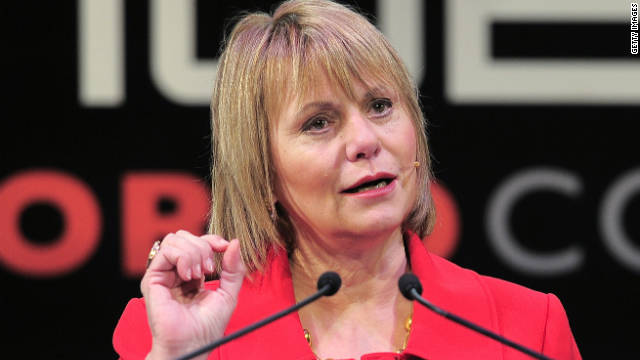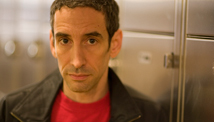I am against the death penalty. I don't think that anyone should be killed for their crimes, no matter how heinous. I believe that the presence of doubt, the potential for human error, and the predilections toward bias affect the outcome of every single thing people do. Therefore, there is no impartial jury, no impartial judge, no impartial anything.
To live with the guilt I'd feel of sentencing someone to death would be to live a smothered life.
I understand the innate desire for revenge, the "eye for an eye" mentality, the satisfaction of schadenfreude. But to kill another human being? You play g-d. You take on a responsibility that is not yours. If your g-d will judge the guilty, why should you? Punish them, lock them away, but do not take their lives. Some good news before the bad news:
Death penalty
Capital account
Sep 22nd 2011, 16:58 by The Economist online
Both executions and death sentences have fallen sharply in recent years in America
DURING the night of September 21st two prisoners were executed in America. Lawrence Brewer, a member of a white-supremacist gang convicted of dragging a black man to death behind a pick-up truck in 1998, died in Texas. Troy Davis, a black man convicted of killing an off-duty white policeman in 1989, was put to death in Georgia after international protest over the quality of the evidence against him proved fruitless. Their deaths brought the number of executions in America so far this year to 35. The charts below show two interesting trends. The first is the sharp fall in both executions and death sentences in recent years in America. The second is the increasing lag between sentencing and execution. And killing a white person seems disproportionately likely to secure a death sentence. The Federal Bureau of Investigation’s latest figures, for 2009, show virtually identical numbers of black and white victims of homicide, yet on NAACP figures capital crimes against whites lead to three-quarters of all death sentences.
 Read also: "A death in Georgia"
Read also: "A death in Georgia"
(above from the Economist, below from CBS)
Troy Davis executed, supporters cry injustice
(CBS/AP)
JACKSON, Ga. - Strapped to a gurney in Georgia's death chamber, Troy Davis lifted his head and declared one last time that he did not kill police officer Mark MacPhail. Just a few feet away behind a glass window, MacPhail's son and brother watched in silence.
Outside the prison, a crowd of more than 500 demonstrators cried, hugged, prayed and held candles. They represented hundreds of thousands of supporters worldwide who took up the anti-death penalty cause as Davis' final days ticked away.
"I am innocent," Davis said moments before he was executed Wednesday night. "All I can ask ... is that you look deeper into this case so that you really can finally see the truth. I ask my family and friends to continue to fight this fight."
Prosecutors and MacPhail's family said justice had finally been served.
Troy Davis executed in Georgia
High Court rejects Troy Davis' last minute appeal
Troy Davis' last words: I'm innocent
High Court rejects Troy Davis' last minute appeal
Troy Davis' last words: I'm innocent
"I'm kind of numb. I can't believe that it's really happened," MacPhail's mother, Anneliese MacPhail, said in a telephone interview from her home in Columbus, Ga. "All the feelings of relief and peace I've been waiting for all these years, they will come later. I certainly do want some peace."
She dismissed Davis' claims of innocence.
"He's been telling himself that for 22 years. You know how it is, he can talk himself into anything."
Davis was scheduled to die at 7 p.m., but the hour came and went as the U.S. Supreme Court apparently weighed the case. More than three hours later, the high court said it wouldn't intervene. The justices did not comment on their order rejecting Davis' request for a stay.
CBS News justice correspondent Jan Crawford reports that even the four liberal justices on the nation's highest court agreed - Davis had multiple chances to prove his innocence, and each time he failed.
Hundreds of thousands of people signed petitions on Davis' behalf and he had prominent supporters. His attorneys said seven of nine key witnesses against him disputed all or parts of their testimony, but state and federal judges repeatedly ruled against him — three times on Wednesday alone.
U.S. executions, by the numbers
White supremacist executed in Texas
The slow death of the death penalty?
White supremacist executed in Texas
The slow death of the death penalty?
Officer MacPhail's widow, Joan MacPhail-Harris, said it was "a time for healing for all families."
"I will grieve for the Davis family because now they're going to understand our pain and our hurt," she said in a telephone interview from Jackson. "My prayers go out to them. I have been praying for them all these years. And I pray there will be some peace along the way for them."
Davis' supporters staged vigils in the U.S. and Europe, declaring "I am Troy Davis" on signs, T-shirts and the Internet. Some tried increasingly frenzied measures, urging prison workers to stay home and even posting a judge's phone number online, hoping people would press him to put a stop to the lethal injection. President Barack Obama deflected calls for him to get involved.
"They say death row; we say hell no!" protesters shouted outside the Jackson prison before Davis was executed. In Washington, a crowd outside the Supreme Court yelled the same chant.
As many as 700 demonstrators gathered outside the prison as a few dozen riot police stood watch, but the crowd thinned as the night wore on and the outcome became clear.
Minister Lynn Hopkins, left, comforts her partner Carolyn Bond after hearing that the U.S. Supreme Court rejected a last minute plea of Georgia death row inmate Troy Davis In Jackson, Ga., Sept. 21, 2011.
(Credit: AP)
Davis' execution had been halted three times since 2007. The U.S. Supreme Court even gave Davis an unusual opportunity to prove his innocence in a lower court last year. While the nation's top court didn't hear the case, they did set a tough standard for Davis to exonerate himself, ruling that his attorneys must "clearly establish" Davis' innocence — a higher bar to meet than prosecutors having to prove guilt. After the hearing, a lower court judge ruled in prosecutors' favor, and the justices didn't take up the case.
His attorney Stephen Marsh said Davis would have spent part of Wednesday taking a polygraph test if pardons officials had taken his offer seriously. But they, too, said they wouldn't reconsider their decision. Georgia's governor does not have the power to grant condemned inmates clemency.
As his last hours ticked away, an upbeat and prayerful Davis turned down an offer for a special last meal as he met with friends, family and supporters.
"Troy Davis has impacted the world," his sister Martina Correia said before the execution. "They say, `I am Troy Davis,' in languages he can't speak."
Members of Davis' family who witnessed the execution left without talking to reporters.
Davis' supporters included former President Jimmy Carter, Pope Benedict XVI, a former FBI director, the NAACP, several conservative figures and many celebrities, including hip-hop star Sean "P. Diddy" Combs.
"I'm trying to bring the word to the young people: There is too much doubt," rapper Big Boi, of the Atlanta-based group Outkast, said at a church near the prison.
At a Paris rally, many of the roughly 150 demonstrators carried signs emblazoned with Davis' face. "Everyone who looks a little bit at the case knows that there is too much doubt to execute him," Nicolas Krameyer of Amnesty International said at the protest.
Davis was convicted in 1991 of killing MacPhail, who was working as a security guard at the time. MacPhail rushed to the aid of a homeless man who prosecutors said Davis was bashing with a handgun after asking him for a beer. Prosecutors said Davis had a smirk on his face as he shot the officer to death in a Burger King parking lot in Savannah.
No gun was ever found, but prosecutors say shell casings were linked to an earlier shooting for which Davis was convicted.
Witnesses placed Davis at the crime scene and identified him as the shooter, but several of them have recanted their accounts and some jurors have said they've changed their minds about his guilt. Others have claimed a man who was with Davis that night has told people he actually shot the officer.
"Such incredibly flawed eyewitness testimony should never be the basis for an execution," Marsh said. "To execute someone under these circumstances would be unconscionable."
The National Association for the Advancement of Colored People, which helped lead the charge to stop the execution, said it considered asking Obama to intervene, even though he cannot grant Davis clemency for a state conviction.
Press secretary Jay Carney issued a statement saying that although Obama "has worked to ensure accuracy and fairness in the criminal justice system," it was not appropriate for him "to weigh in on specific cases like this one, which is a state prosecution."
Dozens of protesters outside the White House called on the president to step in, and about 12 were arrested for disobeying police orders.
Davis was not the only U.S. inmate put to death Wednesday evening. In Texas, white supremacist gang member Lawrence Russell Brewer was put to death for the 1998 dragging death of a black man, James Byrd Jr., one of the most notorious hate crime murders in recent U.S. history.
On Thursday, Alabama is scheduled to execute Derrick Mason, who was convicted in the 1994 shooting death of convenience store clerk Angela Cagle.




